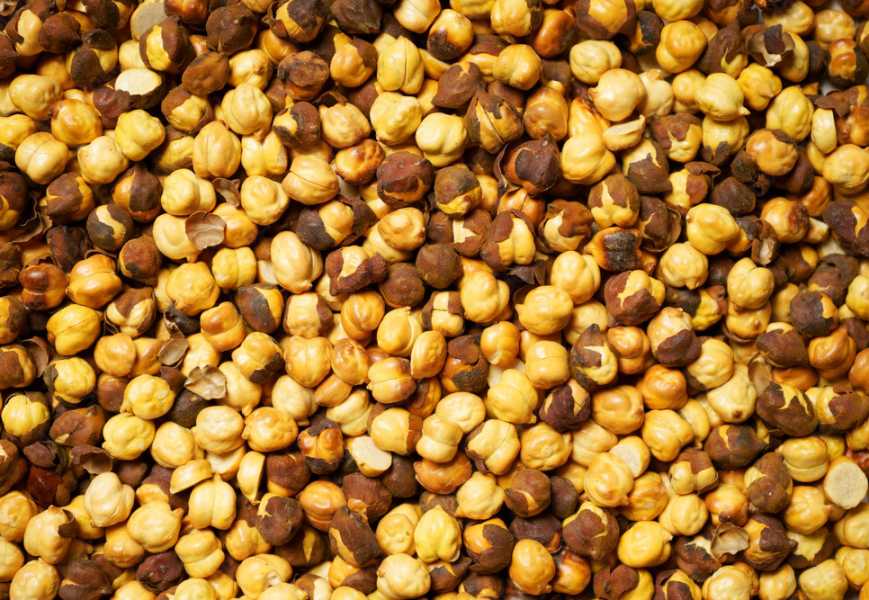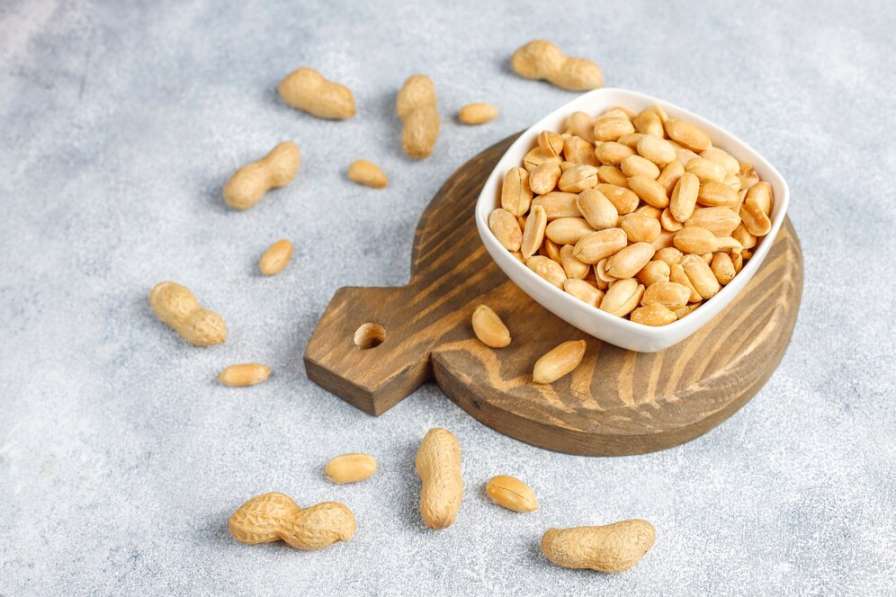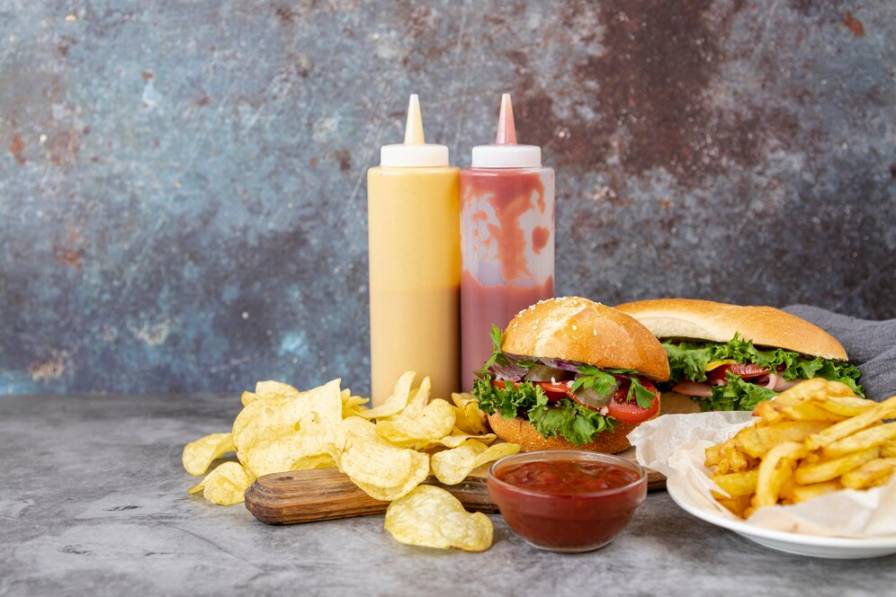
How to Stop Eating Junk Food: Imagine you’ve just returned home from a hard day. You’re tired and hungry; what’s the first thing that would settle you down or make you feel better? I am sure you started thinking about your favourite food! What a delight to have a McDonald’s burger, pizza, or pasta from your favourite restaurant! Even if you know it’s unhealthy for you, you’ll still do it. And this is not a single case; it occurs regularly!
When you start your weight-loss journey, you may think, “Why can’t I lose weight?” Maybe you eat junk food all the time or take it in whenever you want. You look to be fighting with self-control and frequent cravings.
Why is junk food so appealing, and how do you stop eating junk food?
It’s 3 p.m., and you’re suffering from the all-too-common afternoon slump. It makes you crave sugar, salt, or caffeine. You’re not by yourself. Many people experience cravings on a regular, even daily basis.
Food makers, believe it or not, frequently create foods with the intention of starting the addiction cycle in consumers. They strive to achieve the “bliss point” of a product. This is the point at which the eater feels the most satisfied, with just the right amount of salty, sweet, and fatty flavours. These combinations are especially difficult to resist, and your brain reacts in a manner similar to cocaine and other drug addictions. While giving in to cravings may appear to be unavoidable at the time, there are a few basic things you can do to manage them.
Why can’t you stop eating junk food?
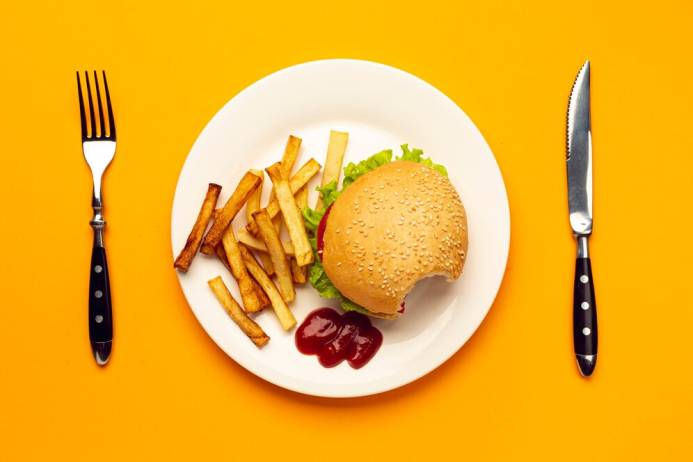
- Have you ever had a second helping of dessert after a big dinner, finished a huge bag of crisps, or ordered extra portions from fast food restaurants? You are not by yourself. With some unhealthy foods, knowing when to stop can be extremely difficult.
- What is it about particular foods that makes them appear to be irresistible? What keeps us coming back for more, even when we’re full? What causes us to overeat items we know are terrible for us?
- We frequently punish ourselves for our junk food desires, but it’s no coincidence that these items are so difficult to resist and that we struggle to control our food intake. Food manufacturers create foods to taste as good as possible in order to overcome our internal’stop’ signals and persuade us to buy more.
How To Stop Eating Junk Food
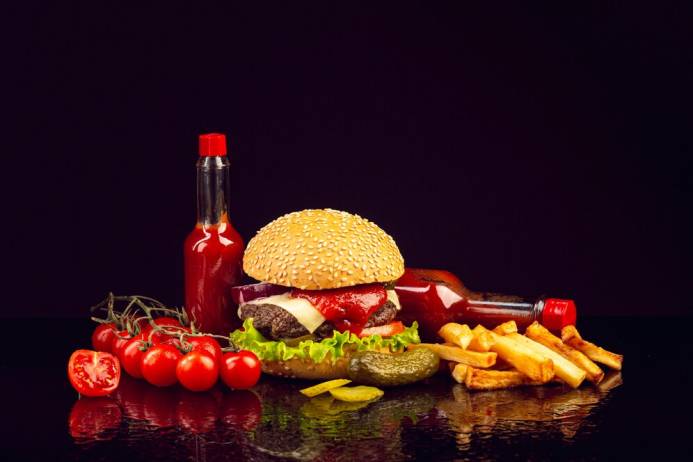
1. Plan ahead of time
- The simplest way to deal with cravings is to organise your meals and snacks in advance. If you have a nutritious meal and snacks prepared for you at lunch and in the afternoon, you’ll be far less tempted to grab an extra piece of pizza, order French fries, or eat the sweets brought into the office.
- In other words, you will have reduced “food cue sensitivity.” Researchers refer to this as your vulnerability to being influenced by the food smells, ads, and conversations that surround you every day.
- Try to plan your weekly meals for Sunday, or the day before your workweek begins. Shop for what you need. Then make large quantities of everyday foods like brown rice, beans, stir-fried or roasted vegetables, or cold salads. Pack serving quantities in food storage containers, mason jars, or paper to bring with you when you leave in the morning. Apples, bananas, and oranges travel well and may be kept at your desk, making them ideal afternoon snacks.
2. Consume an adequate amount of protein
- Protein makes you feel fuller than other macronutrients, such as carbohydrates.
- Protein-rich foods included in your diet are:
- non-veg, beans, whole grains, veggies, and nuts.
- When you feel full, you have less space and an appetite for junk food.
3. Consume healthy fats
- One of the most common nutritional misconceptions is that fat causes weight gain. Actually, your body needs fat!
- However, there are different types of fat.
- While trans fat and saturated fats should be avoided, heart-healthy fats such as almonds and avocado will keep you satisfied and reduce cravings.
- Snack on a handful of mixed nuts in the afternoon. You may also make a salad with olive oil and vinegar.
- Fresh avocados or fatty seafood like salmon are also excellent sources of healthy, delicious fats.
4. Shop around the perimeter
The vegetable, dairy, meat, and seafood sections are usually located around the perimeter of the grocery store. This is where you’ll discover actual foods, not heavily processed stuff. Try to buy exclusively from these departments when you go shopping. Buy nothing that has more than a few ingredients listed on the label. This is an important step in changing to a whole-food diet.
Your body and palate will get used to:
- fruits and vegetables
- grains
- soybeans
- proteins
Because you’ll be getting all of the nutrients you need from these nutritious foods, your desires for the false stuff will begin to fade. It may take a few weeks, but it will ultimately taste bad to you!
5. Consider junk food in a new light.
- According to a 2013 study, when individuals were told to look at and interpret one of their favourite junk foods negatively, their desire for it was reduced.
- Participants were instructed to think about the desired food as if they were: They were already full when they spotted the sneezed-on food item; they had been warned about the negative consequences of consuming the meal.
- Your subconscious mind is far more powerful than you realise. It is okay to try something new!
6. Concentrate on stress management
Cravings nearly always have an emotional component, or perhaps your blood sugar is low and you require an energy boost. When you’re irritated or anxious, you’re more inclined to reach for the Cheetos or cookies. Consider how you might be eating or drinking to suppress emotions, distract yourself, or delay. Try to be gentle with yourself and perform some gentle investigation. When you sense the impulse to reach for food instead of doing or saying what needs to be done, practice refocusing yourself.
Tools for healthy stress management include the following:
- walking or running for a few minutes
- yoga
- meditating
- Take a couple of deep breaths
- speaking with a trustworthy friend or family member.
- Writing.
Experiment to discover what works best for you. Talk to your doctor or a mental health professional if your stress is overwhelming. They can offer emotional support as well as other beneficial, non-food coping mechanisms.
7. Experiment with fruit
- Fruit contains glucose, but it also has vitamins, antioxidants, and water. It also includes fibre, which reduces and regulates blood sugar levels. This prevents a sugar crash.
- Fruit will taste much sweeter and more delightful when you’ve stopped eating manufactured sugar. If you want something sweet, look for a bowl of berries or a piece of watermelon.
- Always have a stock of healthy snacks on hand. The more healthy food alternatives you have, the simpler it will be to avoid the temptation to consume junk food.
- Refrigerate fresh fruit, almonds, and low-fat yoghurt, and always have a few snacks in your vehicle or handbag.
- Store uncooked veggies in the freezer.
- Cooking dinner at home saves money and takes nearly the same amount of time as using a drive-through restaurant.
8. Get more rest.
- Most individuals do not get adequate sleep. While you are likely aware of the effects on your mood or energy level.
- You may be shocked to find that a lack of sleep is also thought to have a big impact on junk food cravings.
- According to a new study published in Sleep, lack of sleep increases hunger and reduces the capacity to manage eating “appealing snacks.”
- So try to go to bed a bit earlier each night. You should also avoid eating for several hours before bedtime. A full stomach may cause indigestion, making it harder to fall or remain asleep.
How to resist junk food
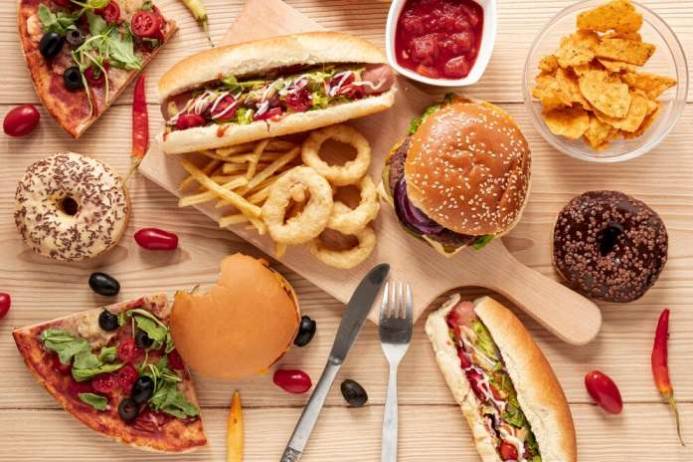
1) Break the pattern
- Judson Brewer states in the TED talk described above that the greatest approach to changing a habit, such as junk food consumption, is to become aware of what is occurring in your mind and body when you crave it.
- Consider being curious about how you feel when you crave or eat a specific item, rather than ignoring your urges. Understanding what happens when we eat junk food allows us to take a step back and lose interest in the habit.
- When you have a craving for junk food, being curious about what is going on (‘Am I irritated, nervous, or hungry?’) will help you overcome it. If you perform this procedure enough times, you will be able to overcome the habit of feeling forced to eat due to cravings.
- If you find yourself craving junk food when you’re stressed or sad, consider finding other ways to relieve your emotions. Walking, listening to music, and writing in a notebook are all good stress relievers.
2) Prepare nutritious meals from complete ingredients.
Healthy eating and balanced meals can help us feel satisfied and reduce the risk of between-meal junk food cravings. Choose between:
- Fresh vegetables (for example, spinach and peppers).
- Meat and fish that have not been processed (for example, chicken or salmon).
- Wholegrain carbohydrate alternatives (like brown rice or rye bread).
- This food philosophy can help you minimise your risk of chronic diseases like type 2 diabetes, high blood pressure, and poor mental health.
3) Consume junk food in moderation.
- Mindful eating can help us break unhealthy habits while allowing us to enjoy junk food on occasion. This involves focusing only on the flavour and texture of the food you’re eating, as well as any sensations you’re feeling at the time.
- It is normal to eat junk food sometimes. The key is to eat it without distractions (for example, not in front of the television or at your desk at work) and to enjoy it so that you feel filled without overloading it.
- Eating mindfully can help us become more aware of our internal hunger cues and avoid ignoring them.
4) Be aware of foods with high happiness points.
- Try to be aware of unexpected foods we take on a regular basis (for example, tomato sauce), which have also been designed to have a pleasure point.
- Real food does not require complicated design or flashy packaging to taste great. Experiment with making your meals to replace processed foods high in sugar and salt.
- For example, you may rapidly prepare tomato sauce by chopping canned tomatoes, herbs, and garlic. Real food does not suppress hunger or overstimulate brain reward circuits, and it tastes delicious.
5) Eat regular meals to avoid feeling hungry.
- When you’re hungry, your stomach sends messages to your brain’s reward system, telling it that you need to respond to any food cues you see.
- Maintain a consistent meal schedule, avoid trendy diets, and incorporate healthy foods and plenty of fruits and vegetables into your daily diet.
- When cravings occur, analyse your desire for junk food. Take a moment to consider why you are seeking a particular food. Are you truly hungry, or are you simply bored? Other emotions can also make you want to eat junk food.
- Examine how you’re feeling and talk to someone or write about it to deal with your feelings instead of indulging them in food.
6) Drink plenty of water and avoid sugar-sweetened beverages.
- Sugary drinks, such as soda, sports drinks, energy drinks, and sweetened teas, may contribute to weight gain.
- One hypothesis is that liquid calories are not recognised by the brain.
- Since people consume almost less food when they drink a glass of regular cola.
7) On exceptional occasions, indulge yourself.
- Just because you want to avoid eating junk food doesn’t mean you won’t be put in situations where you’ll want to indulge.
- Allow yourself a piece of cake if you attend a wedding or a birthday party.
- You can even consider one day every week as a “cheat day” where you can eat some of your favourite foods.
- Avoid over-indulgence, since it may result in a less pleasant physical state the next day.
Conclusion
Junk food is appealing due to sophisticated marketing on television, the internet, and other media. It makes sense that it would be difficult to stay away from these high-calorie substitutes for healthy snacks and meals. Keep in mind that most of the time, it is challenging for individuals to consume and drink nutritious meals and beverages due to our food environment. Make healthy eating choices and avoid junk food by starting small.

